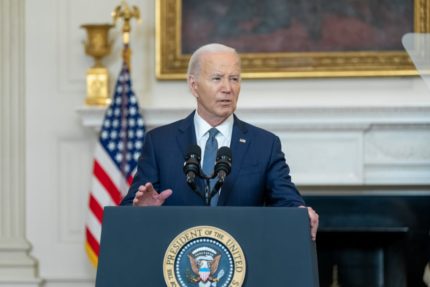United States is reportedly considering negotiating a unilateral deal with Hamas to secure the release of five American hostages in Gaza, independent of Israel. This approach would be pursued through Qatari intermediaries, continuing the method employed in current cease-fire discussions. This development comes as hopes for a successful cease-fire involving Israel appear to be dwindling, prompting U.S. officials to explore alternative avenues to secure the hostages’ freedom.
The hostages were abducted during the October 7 terrorist attack on Israel by Hamas, a recognized terrorist organization by the United States. In addition to the hostages, the U.S. is also seeking the remains of three other American citizens believed to have been killed during the attack and whose bodies were subsequently taken into Gaza by Hamas. The urgency of the situation has led to high-level discussions among current and former senior U.S. officials about the feasibility and implications of negotiating directly with Hamas.
Potential Impact on U.S.-Israel Relations
Negotiating a deal with Hamas without Israel’s involvement could have significant diplomatic repercussions. Officials believe that such a move might exacerbate tensions between the U.S. and Israel, potentially putting additional pressure on Israeli Prime Minister Benjamin Netanyahu. The internal deliberations have taken place with a keen awareness of how a unilateral U.S. agreement with Hamas might influence Nathanyahu stance on the current cease-fire proposal.
Netanyahu is already facing considerable domestic pressure to secure the release of Israeli hostages held by Hamas. Recent estimates by Israeli officials indicate that around 120 hostages are still in Hamas captivity, with 43 having died while being held. The families of these hostages are increasingly vocal, urging the Israeli government to take decisive action. The prospect of the U.S. negotiating independently with Hamas could further intensify this pressure, potentially leading to a breakthrough in the ongoing cease-fire discussions.
Uncertainties and Potential Outcomes
While the specifics of what the U.S. might offer Hamas in exchange for the hostages remain unclear, the strategic implications are profound. Hamas may see a unilateral deal with the U.S. as advantageous, possibly providing leverage in their broader conflict with Israel. Such a deal could also shift the dynamics of the U.S.-Israel relationship, as well as impact regional stability and the broader geopolitical landscape.
The Biden administration’s contemplation of this route underscores the complexity and urgency of the hostage situation. As the situation evolves, the administration faces the delicate task of balancing the immediate need to secure the hostages’ release with the broader implications for United States foreign policy and its alliance with Israel. The outcome of these deliberations remains uncertain, but the discussions reflect a significant potential shift in the United States approach to dealing with Hamas and the Israeli-Palestinian conflict.
Hostage Crisis in Gaza Escalates Tensions
The ongoing hostage crisis in Gaza has taken a turn for the worse, with five Americans believed to be held captive by Hamas, and three others reported killed during a recent terrorist attack. Edan Alexander, Sagui Dekel-Chen, Hersh Goldberg-Polin, Omer Neutra, and Keith Siegel are the American nationals reportedly held hostage, while Itay Chen, Judy Weinstein, and Gad Haggai are the three who lost their lives in the October 7th attack.
Over the weekend, the Israel Defense Forces conducted a daring operation to rescue four Israeli hostages kidnapped from the Nova music festival. However, this raid came at a heavy cost, with Gaza’s Health Ministry reporting at least 274 Palestinian casualties, including dozens of children.
United States Efforts for Ceasefire and Hostage Release
In an effort to diffuse the escalating tensions, Secretary of State Antony Blinken is expected to travel to the region on Monday to discuss the latest attempts to secure a ceasefire deal. However, a senior administration official has expressed concerns that the Israeli raid to free the four hostages on Saturday may have complicated Blinken’s efforts to achieve an agreement and secure the release of the remaining hostages.
The official further stated that the successful rescue operation has only strengthened Prime Minister Benjamin Netanyahu’s determination to continue pursuing military operations in Gaza, rather than committing to a halt in the fighting. This stance could potentially derail any progress towards a ceasefire or hostage release.
Exploring Prisoner Swap Options
In some past efforts to free wrongfully detained Americans overseas, the United States has conducted prisoner swaps. However, it remains unclear if there are prisoners in United States. custody whose release Hamas would demand, and whom the Biden administration would deem acceptable to free based on their criminal convictions.
Despite the challenges, the senior United States. official acknowledged that the idea of trying to negotiate a deal between the Biden administration and Hamas remained a “very real option” if the current proposed ceasefire deal fails to advance. White House national security adviser Jake Sullivan said on Sunday that the U.S. is still awaiting an “official” response from Hamas to the latest offer.
In a concerted effort to resolve the crisis, CIA Director William Burns and White House Middle East coordinator Brett McGurk both traveled to the region last week to continue talks on the ceasefire proposal.














